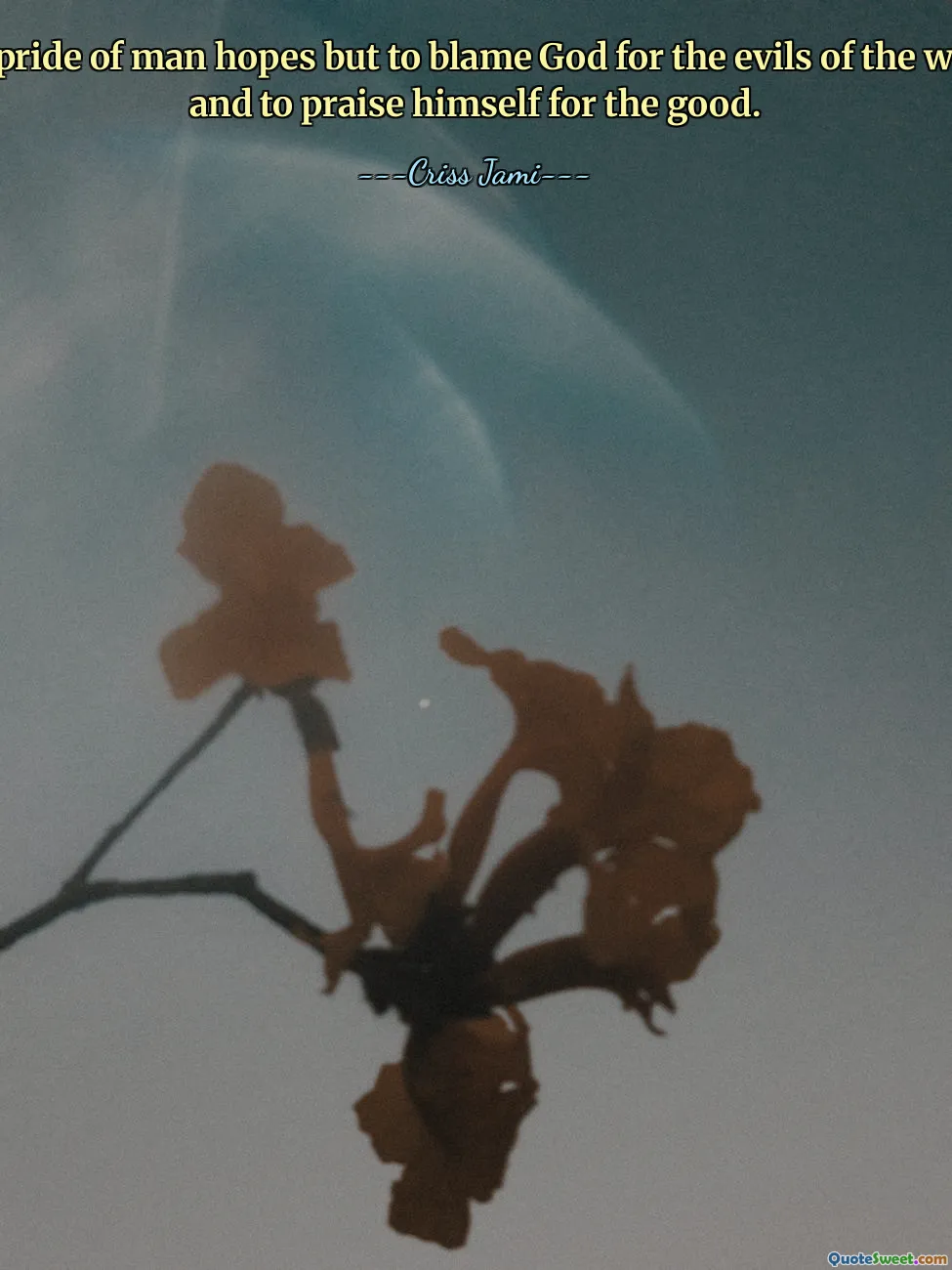
The pride of man hopes but to blame God for the evils of the world, and to praise himself for the good.
This quote by Criss Jami highlights a profound aspect of human nature: our tendency to attribute the world's suffering to divine blame while taking credit for its blessings. It underscores a fundamental flaw in human pride—our inclination to see ourselves as the origin of goodness yet deflect responsibility for the suffering and evil we witness or experience. In many traditions and philosophies, there is this constant struggle between humility and arrogance, where humans often elevate themselves as the architects of their fortunes, forgetting the larger context of divine or natural forces. This attitude can lead to a distorted perception of morality, fostering a sense of entitlement regarding good outcomes and an unjust blame of external, often divine, entities for misfortunes.
The concept encourages reflection on humility and accountability. Recognizing that humans are not solely the masters of their fate but are influenced by a myriad of forces—be they divine, natural, or societal—calls for a more balanced view. It discourages divisiveness and blame-shifting, urging instead a recognition of collective responsibility. Moreover, it invites us to humble ourselves in the face of life's complexities, acknowledging that no single human is the sole hero or villain in the unfolding story of existence.
By contemplating this perspective, individuals might cultivate greater compassion, understanding, and internal peace. Instead of resorting to blame, society can focus on constructive solutions, fostering empathy over entitlement. When humility prevails, it paves the way for genuine progress, where acknowledgment of our limitations and interconnectedness replaces arrogance and superficial self-praise.











